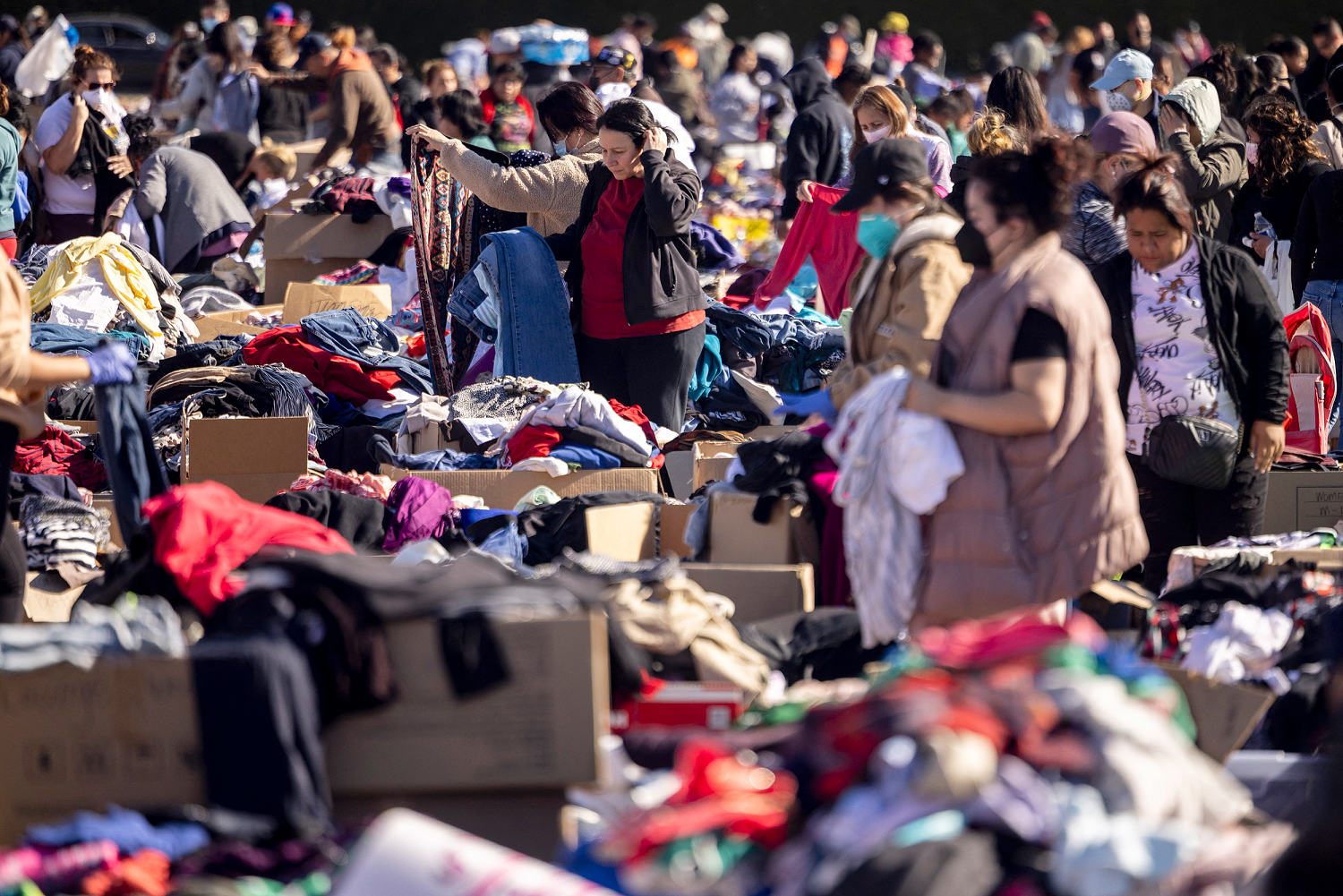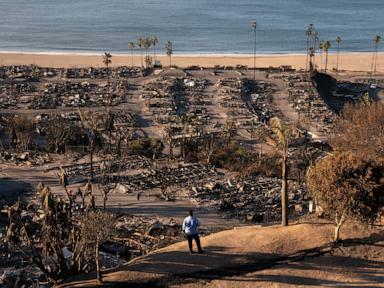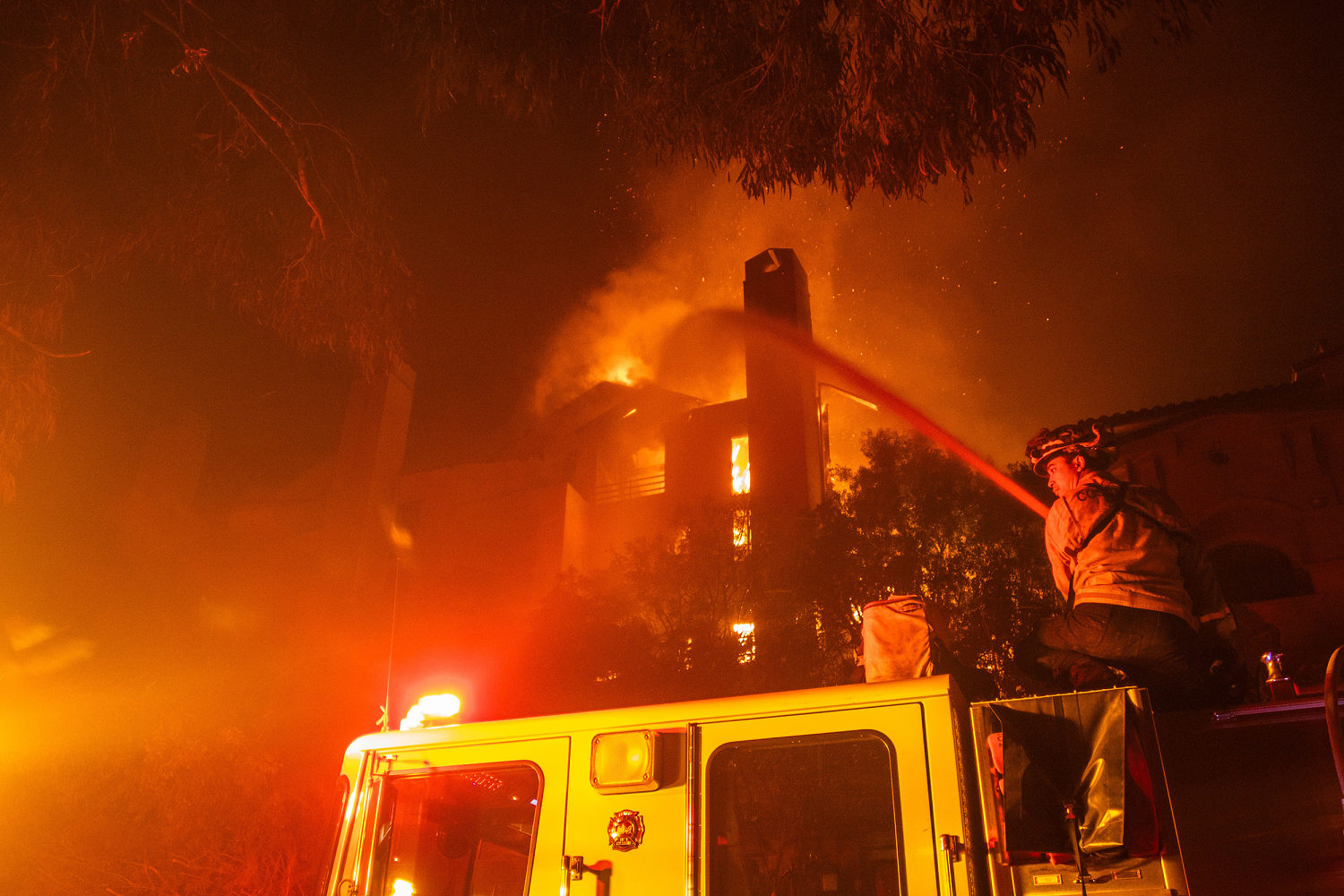‘Forest management’ misdirection worsens community wildfire threats

After the devastation of Los Angeles communities in recent wildfires, our national wildfire policies must focus on saving lives and neighborhoods from future fires, and rebuilding in a fire-safe way that prevents it from happening again.
This is not just about Los Angeles, or California. It is about vulnerable communities across the nation, from the arid regions of the western U.S. to parts of Florida, Appalachia, the New Jersey Pine Barrens and many at-risk communities in between.
The problem is that, as a society, we cannot seem to have that essential conversation. There is a sort of cultural anomaly, like a spell, that inexorably steers the discussion and the funding for wildfire policies toward “forest management.” This misdirection is putting lives and communities at risk.
The Eaton and Palisades fires that destroyed communities and killed at least 28 people in Los Angeles were not forest fires. The fire that destroyed Lahaina in Maui in 2023, and killed at least 102 people, was not a forest fire. In fact, most of the wildfires that have had the worst impacts on lives and homes have not been forest fires.
Yet every time another town is destroyed by a wildfire, usually nowhere near a forest, politicians shift the conversation and the funding away from creating fire-safe communities and instead focus on “forest management.” Congress and President Biden did this when they passed the Infrastructure Act in 2021, and again when they passed the Inflation Reduction Act in 2022. Billions of taxpayer dollars were allocated for forest management, supposedly to save vulnerable communities from wildfires.
President Trump and the current Congress are also doing it. As Trump toured the Palisades fire in Los Angeles on Jan. 24, 2025, with the nearest forests dozens of miles away, he once again suggested that the community devastation was somehow about the lack of forest management.
House Republicans recently claimed that, in order to protect communities in Los Angeles and elsewhere from wildfires, we must “aggressively increase the pace and scale of our forest management” on federal lands by passing the “Fix Our Forests Act.” This is a bill that would override and weaken environmental laws to facilitate a huge increase in taxpayer-subsidized logging of mature and old-growth trees on federal lands under euphemisms like “thinning” and “fuel reduction.”
On Jan. 23, 2025, House Republicans passed this backcountry logging bill, joined by 64 Democrats. This was the response of the House to the tragic losses of entire communities in Los Angeles, and at least 28 deaths, nowhere near forests.
Why is this misdirection so dangerous? Because it diverts attention and resources away from the only actions that are scientifically proven to effectively protect communities from wildfires: home hardening; defensible space pruning within 100 feet of homes and other structures; and evacuation planning and preparedness, including better early warning systems. This community-based approach really works.
In contrast, science shows that vegetation management and removal activities beyond about 100 feet from homes provide no additional benefit to home protection. Moreover, while politicians keep talking about forest management, they are not talking about building, and post-fire rebuilding, with fire-resistant materials that, unlike wood, don’t easily burn, such as recycled light-gauge steel, structural hempcrete blocks and 3-D printed homes.
Even in forested areas, abundant scientific evidence shows that removing trees reduces wind resistance and allows gusts to dramatically increase the speed of wildfires, giving people less time to safely evacuate, and first responders less time to help save lives and homes.
In recent years, large fires have rapidly swept through “thinned” forests before burning down towns, as we saw tragically with the towns of Paradise, Grizzly Flats and Greenville in northern California in recent years. Nor would mastication or other removal of native chaparral have helped in the Los Angeles fires, as such actions only cause chaparral to be replaced by highly combustible invasive grasses, which spread flames and embers even faster.
Moreover, “thinning” and other logging activities contributes to the global cycle of climate chaos by increasing carbon emissions more than threefold per acre relative to fire alone, worsening climate change and the extreme weather that drives big fires.
Politicians of both parties: Knock it off with this dangerously misdirected narrative about forest management. People need your help. If you don’t change course, and focus on helping create fire-safe communities, the heartbreaking impacts that we just witnessed in the Los Angeles fires will happen again, and again, across the country.
Chad Hanson, based in Kennedy Meadows in the southern Sierra Nevada mountains, is a wildfire scientist with the John Muir Project of Earth Island Institute, and the author of the book “Smokescreen: Debunking Wildfire Myths to Save Our Forests and Our Climate.”
Topics
-

Climate change worsened likelihood of California wildfires: Report
The recent wildfires in California were worsened by climate change, a new report found. The study, released Tuesday by the World Weather Attribution, found that human-caused climate change ...The Hill - 4d -

At Sundance, a film about wildfire recovery stirs raw emotions: 'Community is the solution'
We sat down with the team behind 'Rebuilding' to discuss its timely depiction of a rancher (Josh O'Connor) attempting to pick up the pieces after a fire destroys his family's property.Los Angeles Times - 6d -
Landslides pose new threat amid California wildfires
A potential risk of landslides is posing a new threat stemming from the California wildfires, caused by all of the water used to fight the flames. CBS News' Rob Marciano has the latest.CBS News - Jan. 17 -

Los Angeles community steps up to offer wildfire victims a sense of 'normalcy'
Feeling helpless about the devastating wildfires in Los Angeles, everyone, from celebrities and influencers to normal Angelenos, have rushed to help those in need.NBC News - Jan. 15 -

Los Angeles communities displaced by wildfires face shelter 'insanity'
Los Angeles residents who fled devastating wildfires are facing a huge rebuilding effort, as they gather what they can from ruins that were once their homes.ABC News - Jan. 13 -

Trump makes misguided accusations about California water management amid wildfires
President-elect Donald Trump has used the devastating Los Angeles wildfires to revisit a policy disagreement with California Gov.NBC News - Jan. 10 -
Palisades Fire devastates communities amid call for additional help to contain wildfires
The Palisades Fire has devoured everything in its path, including some of the most exclusive and pricey neighborhoods in the U.S. It is now considered the most destructive fire in Los Angeles ...CBS News - Jan. 9 -
Flames spread in California community as wildfires continue to burn around Los Angeles
KCAL News' Joy Benedict reports on the devastating wildfires raging in the California community of Altadena.CBS News - Jan. 8 -
Multiple wildfires burn around Los Angeles, devastating communities
Multiple wildfires are burning around Los Angeles, including the Palisades Fire, which has destroyed homes and businesses and forced tens of thousands to evacuate. It's one of three volatile fires ...CBS News - Jan. 8
More from The Hill
-

Trump rips 'always wrong' Wall Street Journal for criticizing his tariffs
President Trump on Sunday ripped The Wall Street Journal for criticizing his recent tariffs. “The ‘Tariff Lobby,’ headed by the Globalist, and always wrong, Wall Street Journal, is working hard to ...The Hill - 38m -

GOP rep says he supports 'purging' of State Department
Republican Rep. Brian Mast (Fla.), who chairs the House Foreign Affairs Committee, said he supports “purging” personnel at the State Department. Mast joined CBS’s “Face the Nation” on Sunday, where ...The Hill - 39m -

Paxton weighs Cornyn challenge as Texas GOP rift deepens
Texas Attorney General Ken Paxton (R) is weighing a primary challenge to Sen. John Cornyn (R) in what could be the next high-profile proxy battle between the two competing wings of the state’s GOP. ...The Hill - 1h -

Musk calls GOP senator a 'great ally' after previously blasting him over Gabbard nomination
Tech billionaire Elon Musk called GOP Sen. Todd Young (Ind.) a “great ally” after he previously criticized the lawmaker over Tulsi Gabbard’s nomination to become director of national intelligence. ...The Hill - 1h -

Klobuchar says Trump tariffs are 'not what American economy needs right now'
Sen. Amy Klobuchar (D-Minn.) criticized President Trump’s decision to impose 25 percent tariffs on Mexican and Canadian goods and a 10 percent tariff on Chinese exports. In an interview on MSNBC’s ...The Hill - 1h
More in Politics
-

Trump rips 'always wrong' Wall Street Journal for criticizing his tariffs
President Trump on Sunday ripped The Wall Street Journal for criticizing his recent tariffs. “The ‘Tariff Lobby,’ headed by the Globalist, and always wrong, Wall Street Journal, is working hard to ...The Hill - 38m -

GOP rep says he supports 'purging' of State Department
Republican Rep. Brian Mast (Fla.), who chairs the House Foreign Affairs Committee, said he supports “purging” personnel at the State Department. Mast joined CBS’s “Face the Nation” on Sunday, where ...The Hill - 39m -

Paxton weighs Cornyn challenge as Texas GOP rift deepens
Texas Attorney General Ken Paxton (R) is weighing a primary challenge to Sen. John Cornyn (R) in what could be the next high-profile proxy battle between the two competing wings of the state’s GOP. ...The Hill - 1h -

Musk calls GOP senator a 'great ally' after previously blasting him over Gabbard nomination
Tech billionaire Elon Musk called GOP Sen. Todd Young (Ind.) a “great ally” after he previously criticized the lawmaker over Tulsi Gabbard’s nomination to become director of national intelligence. ...The Hill - 1h -

Klobuchar says Trump tariffs are 'not what American economy needs right now'
Sen. Amy Klobuchar (D-Minn.) criticized President Trump’s decision to impose 25 percent tariffs on Mexican and Canadian goods and a 10 percent tariff on Chinese exports. In an interview on MSNBC’s ...The Hill - 1h